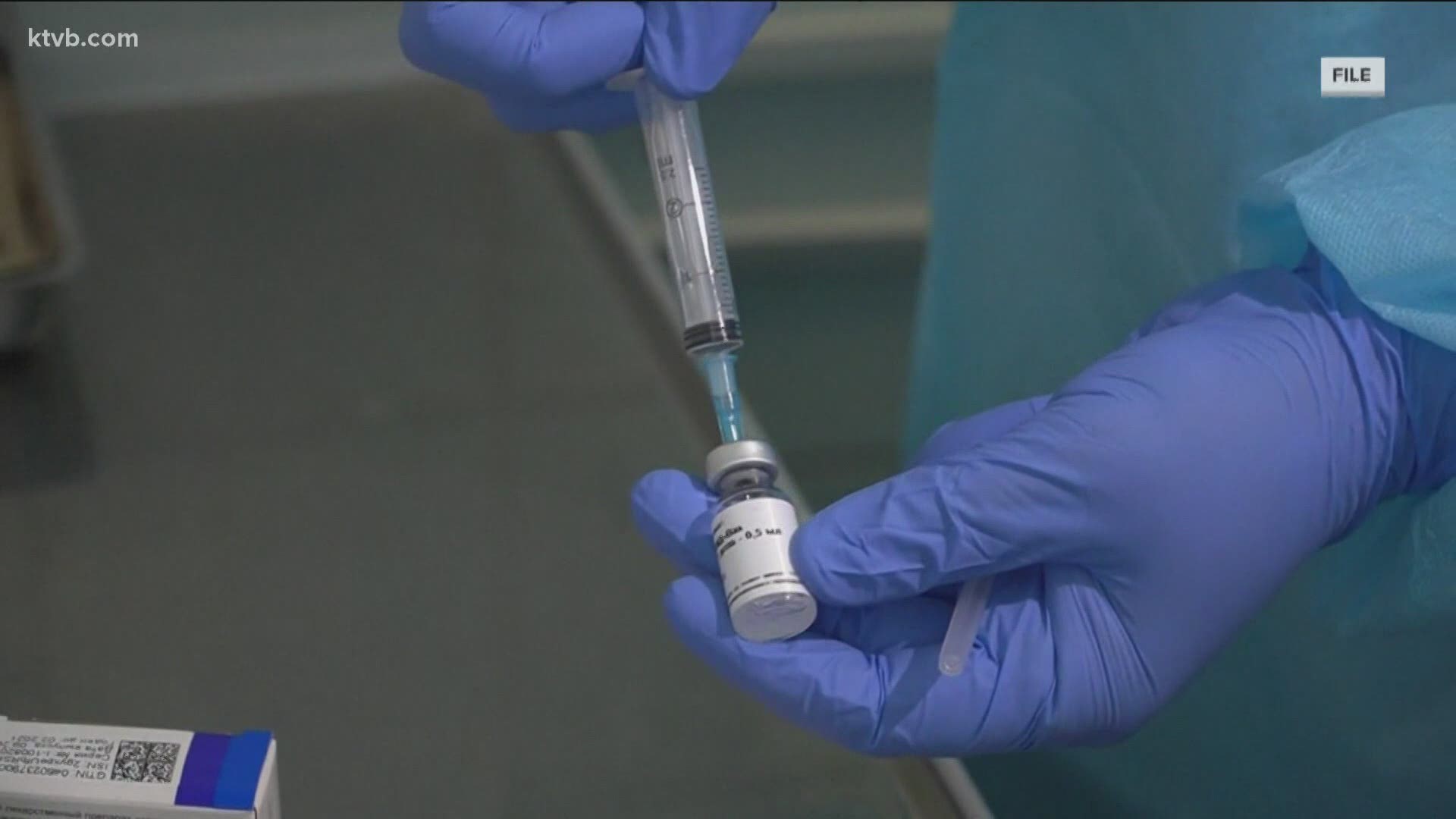BOISE, Idaho — Two healthcare workers in Juneau, Alaska had a severe allergic reaction after receiving the Pfizer vaccine this week and were sent to the intensive care unit (ICU) for treatment.
Only one of the workers had a history of allergies, and both have recovered from their adverse reactions.
These are the first reported incidents of their kind in the U.S., but thousands of people have already received the first dose of the vaccine.
While the chances of an anaphylactic reaction (severe allergic reaction) are very slim, staff giving the vaccine will still monitor for symptoms.
KTVB spoke to health officials from Saint Alphonsus and Saint Luke’s about what vaccine administration looks like for healthcare workers, and the process is pretty uniform.
First, they individually schedule a specific time with their employees.
Once that date and time comes, employees' ID’s are checked, and they sign consent forms.
Then, it’s time to go to the vaccination stations.
“That’s when they’re asked the more specific questions about any problems that they may have had in the past with allergic reactions,” Jennifer Misajet, chief nursing officer for Saint Alphonsus, said.
After the vaccine is given, health care workers will move to an observation area.
Everyone will be monitored for 15 minutes, but those with a history of allergies will have to stay longer.
“The recommendation is that they stay for longer observation, not because they necessarily had a problem with the vaccine, but they may be allergic to an antibiotic,” Misajet said. “Those people we observe for 30 minutes.”
Observation staff will have an abundance of Benadryl and Ephedrine (also known as EpiPen) on hand in case an anaphylactic reaction occurs.
If reactions persist, staff will help transport vaccine recipients for emergency treatment.
People with no adverse reactions will schedule to receive their second dose immediately after release.
“This vaccine, as well as Moderna, requires two shots,” Misajet said. “And we want to make sure people get them.”
Doctor Laura McGeorge, service line medical director for primary and secondary care at Saint Luke’s, said healthcare workers are relieved there is finally an available vaccine.
“For all of our frontline workers, this vaccine is really their first ray of profound hope,” she added.
The Centers for Disease Control and Prevention says:
“Anaphylactic reactions in persons receiving the Pfizer-BioNTech COVID-19 vaccine outside of clinical trials have been reported. While these reports are further investigated, CDC considers a history of severe allergic reaction such as anaphylaxis to any vaccine or to any injectable therapy (e.g., intramuscular, intravenous, or subcutaneous) as a precaution, but not contraindication, to vaccination.”
Facts not fear: More on coronavirus
See our latest updates in our YouTube playlist:

